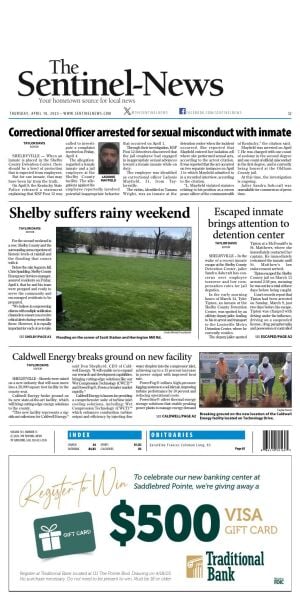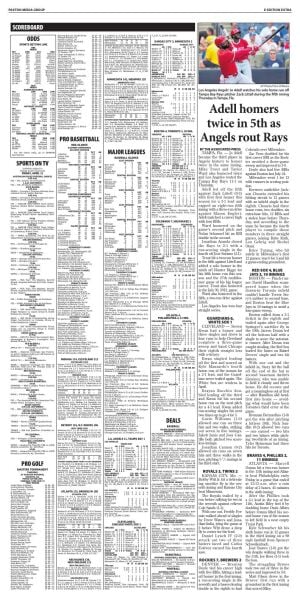The Kentucky General Assembly is in Week 2 of the veto period. Under the Kentucky Constitution, the Governor has 10 days—excluding Sundays-–to sign the bills delivered to him, allow them to become law without his signature, or veto them.
Several notable House bills are with the Governor.
HB 48 aims to reduce burdensome regulations within public schools by streamlining evaluations, training, and reporting requirements. It extends the required summative evaluations for tenured teachers from every three to every five years, ensures districts provide teacher contracts upon request, and establishes a four-year recurring professional development schedule. The bill also reduces the frequency of certain annual trainings, including active shooter response, child abuse prevention, suicide prevention, and seizure disorder training. It limits the Kentucky Board of Education from imposing new reporting requirements on schools unless authorized by state or federal law. Additionally, it encourages school districts to implement induction programs for first-year teachers and requires identifying districts that have not done so.
HB 157 creates a Friends of Kentucky Agriculture special license plate to support the Agricultural Program Trust Fund. The plate costs $28 initially and $23 to renew.
HB 193 streamlines Kentucky’s dual credit and work-ready scholarship programs by consolidating them into a single statute. The bill simplifies administration for schools, colleges, and state agencies while ensuring students have clear access to available opportunities. It allows high school students to take up to eight career and technical education dual credit courses and four general education courses, all covered by dual credit scholarships. Additionally, it removes the penalty that reduced scholarship amounts by 50 percent for unsuccessful course completion and shifts scholarship distribution to a first-come, first-served basis rather than prioritizing seniors over juniors.
HB 208 requires local school boards to prohibit student use of personal telecommunication devices during instructional time, with exceptions for teacher-authorized use. It also expands school internet restrictions by requiring social media platforms to be blocked on school networks.
HB 216 allows Department of Agriculture employees, excluding those in the Kentucky Office of Agricultural Policy, to apply for or receive funds, awards, or contracts from the office. It amends ethics statutes to conform, applies retroactively, and includes an emergency provision.
HB 240 strengthens early literacy by requiring a universal reading screener for kindergarten students in the last 10 days of school. Beginning in the 2025-26 school year, students who do not meet reading benchmarks may be retained in kindergarten or shall remain in first grade for an additional year. Students turning seven by August 1 are exempt from kindergarten retention, and placement decisions for special education students will be made by their admissions and release committee. The bill also requires schools to reevaluate reading improvement plans for retained students.
HB 241 as amended, expands flexibility for Kentucky school districts by addressing virtual learning and lost instructional days. It allows the education commissioner to grant up to five additional NTI (disaster relief) days for districts facing closures due to weather, illness, or disasters. Districts can extend school days up to seven hours to meet the 1,062-hour requirement in fewer than 170 days. If unable to finish by June 4, districts may request a waiver for up to five instructional days, with employees receiving full credit for waived or extended days. The bill also removes KDE’s authority to cap enrollment or funding for district-run virtual programs, allowing nonresident students to enroll—capped at 2 percent of the district’s in-person average daily attendance. HB 241 also includes language from SB 268, a bill I sponsored, for a pilot program for Cloverport Independent School District that permits continued virtual learning with enrollment limits through 2028, with additional safeguards if performance drops.
HB 303 creates academic and career pathways to help military health care personnel transition into civilian health care roles. It allows colleges to offer bridge programs that credit military training, reducing time to earn credentials. Programs must align with the Department of Defense SkillBridge Program, and professional licensure boards will collaborate to support licensing. Schools must report annually on program outcomes, ensuring a smoother transition for military medical professionals into the workforce.
HB 315 bans foreign entities from proscribed countries from acquiring agricultural land in Kentucky or participating in state agriculture programs. They may purchase land for non-agricultural use if developed within five years. The attorney general enforces compliance, with violations leading to state seizure and foreclosure. A Senate committee substitute allows foreign-owned companies to lease land for agricultural research, ensuring operations like Syngenta can continue while maintaining restrictions on foreign land ownership.
HB 342 requires Kentucky high school students entering ninth grade in the 2026-2027 school year or later to complete one credit in financial literacy.
HB 455 establishes the Office of Election Investigations and Security within the Office of the Attorney General and requires an annual report to the Legislative Research Commission.
HB 537 strengthens the Opioid Abatement Trust Fund by ensuring that all money from opioid-related settlements, lawsuits, or bankruptcies goes directly into the fund. It removes outdated references to past legal cases and gives the attorney general the authority to set rules on how certain funds are distributed. The bill improves oversight and ensures settlement money is used to fight addiction and support recovery efforts across Kentucky.
HB 684 updates Kentucky's election procedures, voter accessibility, and candidate filing rules. It allows fewer precinct officers for consolidated precincts and requires election boards to notify schools by December 1 if buildings will be used as polling places, though schools are not required to close. Caregivers of qualified voters may cast excused in-person absentee ballots, and county clerks can issue and reissue mail-in absentee ballots. Ballot drop-box and audit surveillance footage may be disposed of after 60 days unless needed for legal purposes.
HB 694 directs employer contributions for retiree health in the Teachers’ Retirement System (TRS) to be used to reduce the pension fund’s unfunded liability once the retiree health fund is fully funded. If the retiree health fund falls below 95 percent funding, those contributions will return to the health fund until it is fully funded again. The TRS Board may recommend changes to reduce employee or employer contributions once both the pension and retiree health funds are fully funded. This shift in contributions is expected to accelerate the pension fund’s path to full funding by approximately two years.
HB 695 limits the Cabinet for Health and Family Services’ authority to modify the Medicaid program without General Assembly approval and mandates legislative notification of implementation barriers. It requires the cabinet to procure new Medicaid managed care contracts by Jan. 1, 2027, and directs the submission of a waiver application for a community engagement program. The bill reinstates prior authorization requirements for behavioral health services as of Jan. 1, 2020, and modifies coverage and reimbursement for psychoeducational services. It also establishes the Kentucky Medicaid rebate sequestration fund and ensures Medicaid pharmaceutical rebate funds carry forward into future fiscal years. Senate revisions to the bill remove limitations on Medicaid coverage for psychoeducational services and exempt federal CMS-imposed Medicaid changes and university hospital payment programs from requiring General Assembly approval. It allows beneficiaries receiving behavioral health services before enactment to continue care for 180 days without prior authorization. It requires monitoring and reporting of behavioral health and substance use disorder service costs, flagging increases over 10 percent from the previous year. Additionally, it mandates a behavioral health and substance use disorder treatment scorecard for Medicaid managed care organizations and limits the number of Medicaid managed care organizations to three while barring noncompliant organizations from new contracts if they failed to meet fiscal year 2025-2026 requirements under previous legislation. The measure also requires a feasibility study for managed long-term services and supports.
HJR 15 returns the granite Ten Commandments monument for permanent display on the Capitol grounds. It was given to the Commonwealth of Kentucky in 1971 by the Fraternal Order of Eagles.
You can track these bills and meetings in several ways. Stay updated on legislative proceedings by visiting legislature.ky.gov, or finding the status of legislation by calling 866-840-2835. You can also get legislative meeting information at 800-633-9650 and watch live at KET.org/Legislature, or access archived footage on the LRC YouTube Channel at THIS LINK or KET.org/legislature/archives.
You can follow the legislature on social media. For updates, follow me on Facebook Aaron Reed Kentucky Senator #7, Instagram aaronreed5326, X @AaronReed4KY, or track the Senate Majority Caucus at @KYSenateGOP on X and Instagram. Press releases from the Senate Majority Caucus and information on members are also available at our website, kysenategop.com.
Thank you for allowing me to serve you in the Kentucky Senate. If you have any questions, concerns, or ideas, please reach out to my office if I or my staff can be of any assistance to you or your family by emailing me at Aaron.Reed@kylegislature.gov or by calling me toll-free at 1-800-372-7181.










